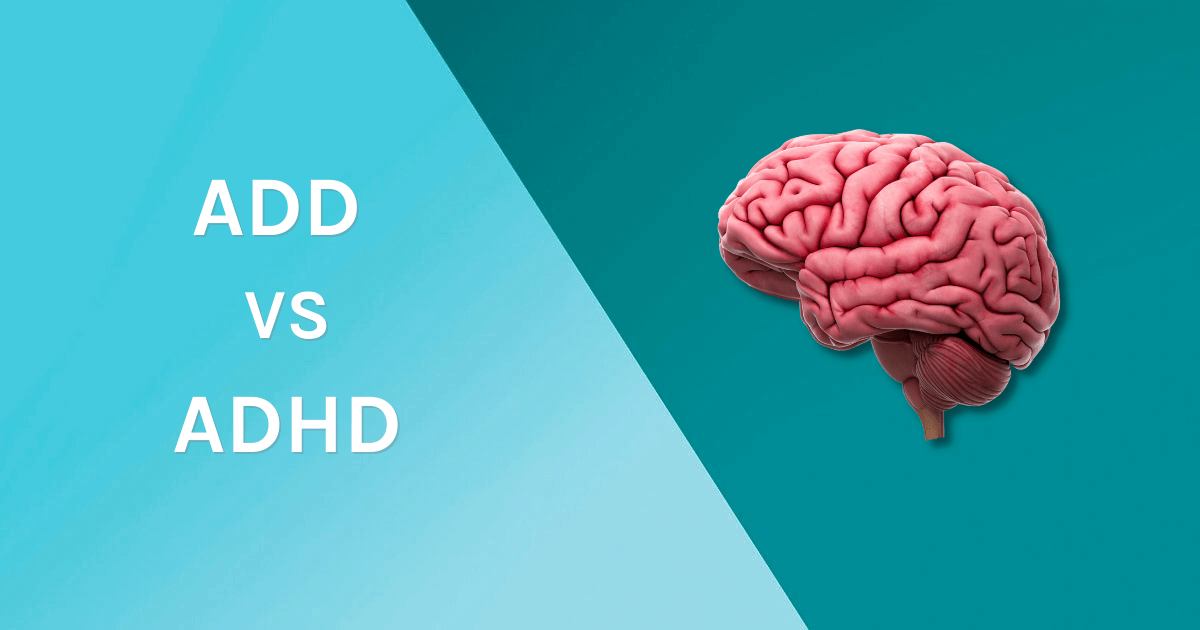

The intensity or predominance of these symptoms can vary in different individuals, explaining the different diagnoses despite falling under the umbrella term of ADHD. Unlike the other two highly manageable symptoms into adulthood, impulsivity often persists throughout the patient’s life and is apparent in their cognitive decision-making process. The child makes rash decisions, does not think about the consequences of their actions, and often has trouble waiting for their turn (like waiting in queues). The child exhibits high energy, loves activities involving physical play, cannot stay seated or remain in the same position for some time, talks too much or fast, and blurts out answers before the other person has completed their sentence/question. The child cannot focus their attention on a specific task, is easily distracted, dislikes or avoids activities requiring focus, and may show disinterest while conversing. The hallmark symptoms of ADHD are listed below: Inattentiveness
#ADD VS ADHD MANUAL#
According to the DSM-5 (the fifth revision of the Diagnostic and Statistical Manual of Mental Disorders), ADHD is classified into three types based on the dominant symptoms. ADHD is the blanket term now used for all attention deficit disorders. What is ADHD?Īttention deficit hyperactivity disorder (ADHD) is a common neuro-development disorder, often diagnosed in children. But with this article, you can learn the difference between ADD and ADHD to ensure you or your loved ones are appropriately diagnosed. It’s dismissed chiefly as childish conduct, but occasionally, an inquisitive teacher might recommend the child be evaluated for Attention Deficit Disorder (ADD).Īlthough well-intentioned, this recommendation has one flaw: ADD hasn’t been a formal diagnosis for several decades. doi:10.We often hear a typical story: a child might not perform well at school, may show distracted behavior, and act like anything the teacher has to say is useless. The effect of dietary education on ADHD, a randomized controlled clinical trial. Effects of an 8-week yoga program on sustained attention and discrimination function in children with attention deficit hyperactivity disorder. Borderline Personal Disord Emot Dysregul. Physical exercise in attention deficit hyperactivity disorder - evidence and implications for the treatment of borderline personality disorder.

Mehren A, Reichert M, Coghill D, Müller HHO, Braun N, Philipsen A. Behavior management for school-aged children with ADHD.

ADHD in the classroom: Helping children succeed in school. Parent training in behavior management for ADHD.Ĭenters for Disease Control and Prevention. Therapy to improve children' mental health.Ĭenters for Disease Control and Prevention. Attention-deficit/hyperactivity disorder (ADHD).Ĭenters for Disease Control and Prevention. Prescription stimulants in individuals with and without attention deficit hyperactivity disorder: Misuse, cognitive impact, and adverse effects. American Psychiatric Association 2013.Ĭenters for Disease Control and Prevention. Diagnostic and Statistical Manual of Mental Disorders, 5th edition.

Parents and teachers may be trained to reinforce the lessons at home and at school.Īmerican Psychiatric Association. Skills are taught such as having conversations, coping with teasing, and making friends.
#ADD VS ADHD HOW TO#
Behavioral peer interventions: With this approach, a therapist or trained professional will lead a group of children in activities that teach them how to interact constructively with their peers.Accommodations may include extra time on tests, additional break time, changes to their environment, positive reinforcement, and assignments made specifically for your child. Behavioral interventions at school: Your child may meet the criteria for extra assistance under the Individuals With Disabilities Education Act (IDEA), or Section 504 of the Rehabilitation Act of 1973.You will learn strategies such as play therapy and talk therapy to allow your child to freely express their feelings and help them adopt healthy coping mechanisms to deal with tough emotions. Parent training in behavior management: Recommended for parents of children under 12 years old, a therapist will train the parent to facilitate their child's behavior changes.Your doctor or therapist might recommend family therapy so that all members of the family can learn healthy ways of managing your child's condition. A session often includes the therapist facilitating a conversation with your child or even providing them with an activity to help them express their feelings. Behavior therapy: With young children, a therapist will usually meet with you and your child.


 0 kommentar(er)
0 kommentar(er)
